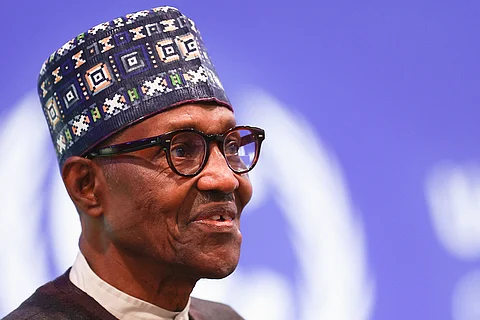Muhammadu Buhari, Nigeria’s former military ruler and two-term civilian president, died on Sunday, July 13, 2025, in a London hospital at the age of 82.
His passing marks the end of a political era defined by discipline, paradoxes, and deep national debate.
From his early military exploits to his democratic presidency, Buhari’s life was a complex blend of reformist ambition and authoritarian tendencies.
Early life
Born on December 17, 1942, in Daura, Katsina State, Buhari was the 23rd child of his father, a Fulani chieftain..
Raised by his mother after his father’s death, he attended Katsina Provincial Secondary School and later joined the Nigerian Military Training College in 1962. His military education took him to the UK, India, and the US, shaping his disciplinarian worldview.
Military career
Buhari rose through the ranks, serving as Governor of the North-Eastern State, Federal Commissioner for Petroleum, and Chairman of the Nigerian National Petroleum Corporation.
In December 1983, he led a coup that ousted President Shehu Shagari, becoming Nigeria’s military head of state.
His regime was known for the War Against Indiscipline, mass arrests, and controversial human rights abuses.
Democratic presidency
After three failed attempts, Buhari won the 2015 presidential election, defeating incumbent Goodluck Jonathan—a historic moment for Nigeria’s democracy. He was re-elected in 2019, defeating Atiku Abubakar.
His presidency focused on anti-corruption, security, and economic reform, though critics often accused him of sluggish governance and regional favoritism.
Achievements
Controversies
- Completion of major infrastructure projects like the Lagos-Ibadan railway and Second Niger Bridge
- Launch of Social Investment Programmes including N-Power and TraderMoni
- Implementation of the Treasury Single Account (TSA) and Whistleblower Policy
- Signing of the Petroleum Industry Act and Finance Acts to modernize fiscal policy
- Nigeria’s exit from recession in 2017 and 2020, despite global economic challenges
- The Twitter ban in 2021 following the deletion of a civil war-related tweet
- The #EndSARS protests and the Lekki Toll Gate shooting, which drew global condemnation
- The Jubril of Sudan conspiracy theory, alleging Buhari was replaced by a body double
- His comment that his wife “belongs to the kitchen, the living room, and the other room”
- Allegations of selective anti-corruption enforcement and human rights violations
- Frequent medical trips to London, raising concerns about transparency and leadership
Death and reactions
Buhari died after a prolonged illness, with his family announcing his passing in London.
President Bola Tinubu ordered flags at half-staff and dispatched Vice President Kashim Shettima to oversee the repatriation of his body.
Tributes poured in from across Africa, with leaders praising his discipline, patriotism, and commitment to Nigeria’s unity, while critics revisited the unfulfilled promises of his tenure.
Legacy
Buhari’s legacy remains deeply polarizing. To some, he was a symbol of integrity and national pride; to others, a rigid leader whose governance style stifled progress. His dual role as military dictator and elected president makes him one of the most consequential figures in Nigeria’s post-independence history.

